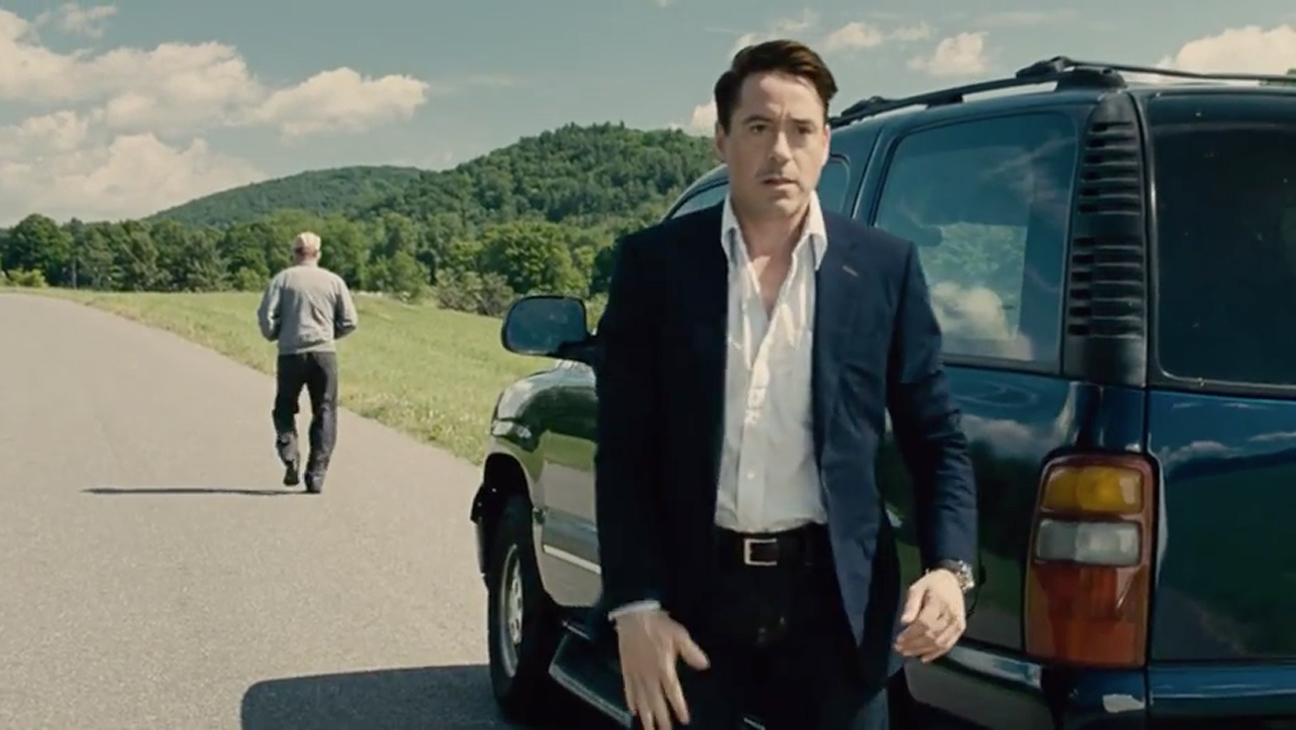Robert Downey Jr. Robert Duvall. Vera Farmiga. Billy Bob Thornton. Vincent D’Onofrio. The Judge sounds pretty can’t miss with that cast right? While being passably entertaining mostly because of the acting talent, The Judge is mired in over-the-top sentimentality and clichés. Turns out the director of Wedding Crashers is bad at subtlety.
Hank Palmer (Downey Jr.) is a star lawyer at a Chicago law firm. He gets a call that his mom has passed away in his small Indiana hometown, so Hank ventures down there to meet up with family: brothers Dale (Jeremy Strong) and Glen (Vincent D’Onofrio), and his dad, Judge Joseph Palmer (Robert Duvall). Before Hank can get back to Chicago, he finds out his dad is being prosecuted for murder by Dwight Dickham (Billy Bob Thornton), forcing Hank to take up his father’s case.
The Judge suffers from subplot hell. At 2 hours and 20 minutes, the movie could use a better editor. As lovely as Vera Farmiga is, her character is not necessary other than to remind Hank that small towns can be charming. That’s 20 minutes right there. Hank’s daughter Lauren (Emma Tremblay) adds some cute, but she functions mostly as a plot device. Leighton Meester better have gotten a lot of money to be in this film, cause her subplot is meant for another film without even giving her a personality. In all, there is probably about 40 minutes of flab that when cut leaves a strong story.
The Hank/family conflict is rooted in standard stuff: past mistakes, outsider family member, small town vs. big city. The script chooses lots of melodrama and big events: disease, senility, murder, to try to generate emotions. However, the central story drives The Judge with the inherent conflict between the family members and errors Hank has made in his past. Watching the family slowly relearn how to trust each other gives The Judge power, not a dropped bomb about cancer. Unfortunately, the script goes to the shock and awe well too often, eventually causing an audience member to throw up their hands and say “Ugh.”
Fortunately, the actors give nuance where the script has none. Downey is his charismatic self, clearly radiating charm and smarm as Hank. When the plot twists start happening, Downey downplays what happens, keeping the reaction small instead of overacting as the screenplay suggests. Duvall can play stoic and haughty in his sleep; he’s especially good when having to show some vulnerability to his kids. Billy Bob is requisitely icy and fearsome as Downey’s rival. Vincent D’Onofrio gets a small backstory and does wonders with it; it’s refreshing to see that resentment can be let go. Vera Farmiga is the small town girl Journey was singing about in Don’t Stop Belivin’. The rest of the cast’s talents are wasted here.
One wonders what the Roberts saw when they read the screenplay for The Judge. Maybe Duvall wanted to be back in a movie. Maybe Downey got sick of playing Iron Man. Either way, they give the story their all, and simply watching these titans in Hollywood make melodrama substantial is an amazing feat in itself. Word of advice though: when the phrase “from the writer of R.I.P.D” is a primary storyteller on your film, you might consider a different writer.

